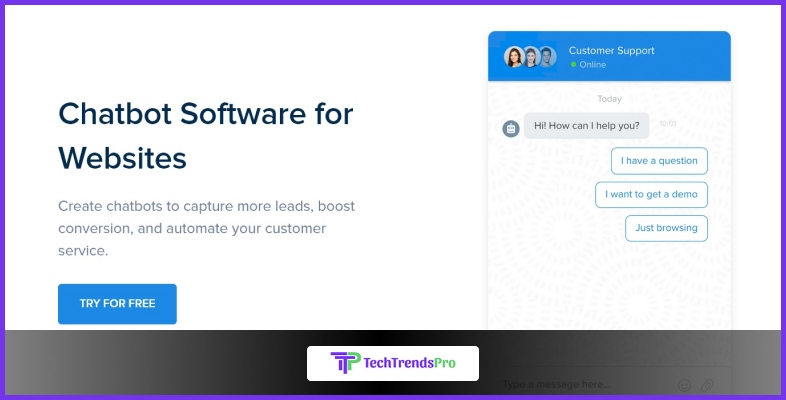
Landing your first software development job can be an arduous journey, especially given the competitive landscape of the tech industry. The good news is that with a clear strategy, including a solid skill set and networking, you can break into the field successfully. This guide will offer practical tips to land your first job in software development, from honing your technical skills to acing your interviews.
Build A Strong Foundation In Programming Fundamentals
Your first step is to gain a deep understanding of programming fundamentals. You don’t necessarily have to go through a traditional four-year computer science degree. Plenty of free online courses, coding boot camps, and tutorials are available to help you learn the basics. Familiarize yourself with languages like Python, Java, or JavaScript to begin with.
Create A Portfolio Of Projects
Having a portfolio can give potential employers tangible evidence of what you can do. This can be anything from a simple weather app to a more complex machine-learning project. Use these projects to show not just your coding skills but also your ability to solve problems and your passion for development.
Learn About Algorithms And Data Structures
Strong algorithmic skills are essential for coding interviews. Websites like AlgoDaily provide valuable resources and practice problems to enhance your understanding. Additionally, if you ever need to convert code between languages, they offer excellent tools to help you in the process.
Master Version Control
Familiarize yourself with Git and other version control systems. Knowing how to clone repositories, create branches, and resolve merge conflicts will not only be beneficial for your projects but will also be a point of interest for potential employers.
Networking And Mentorship
Networking is an often overlooked aspect of the job search process. Join software development communities, attend tech meetups, and participate in hackathons. The aim is to meet people in the industry who can offer advice, mentorship, and possibly even job referrals.
Start Contributing To Open Source
Contributing to open-source projects can be a great way to gain real-world coding experience and demonstrate your skills to potential employers. It also provides an opportunity to collaborate with other developers and learn best practices.
Prepare For Technical Interviews
Apart from the typical behavioral questions, be prepared to go through rigorous technical rounds. This often includes solving problems on a whiteboard or through an online code editor. Again, focus on data structures, algorithms, and coding exercises to prepare.
Customize Your Resume And Cover Letter
Always tailor your resume and cover letter to the specific job description. Use keywords that match the job posting and highlight relevant experience and skills. This increases your chances of passing through Applicant Tracking Systems (ATS).
Internships And Entry-Level Positions
Look for internships or entry-level positions that require minimal experience. These opportunities are excellent for gaining practical knowledge and often act as a stepping stone to a full-time job.
Leverage Online Platforms
Job boards and LinkedIn are not the only ways to land a job. Sites like GitHub and Stack Overflow have job sections. Also, don’t underestimate the power of Twitter. Many developers have landed jobs through Twitter connections.
Pursue Certifications
While not a strict necessity for most development jobs, certifications can add an extra layer of credibility to your resume. There are various certifications available based on programming languages and development methodologies, such as Certified ScrumMaster for Agile development or Oracle’s Java Programmer certification. These not only enhance your skills but also show your commitment to professional development.
Engage In Continuous Learning
The tech industry is ever-changing, with new languages, frameworks, and tools emerging regularly. Therefore, it’s crucial to stay updated with the latest trends. Subscribe to newsletters, follow industry leaders on social media, and regularly read tech blogs and research papers. Make it a habit to learn something new every week, whether it’s a programming language feature, a software development methodology, or a tech trend.
Leverage Social Media And Personal Branding
While traditional job hunting methods are effective, taking advantage of social media can open doors that you may not even know existed. Build a professional online presence on platforms like LinkedIn, Twitter, and GitHub. Share your thoughts on the latest industry trends, showcase your projects, and engage in conversations with professionals in the field. Personal branding can go a long way in making you stand out among other applicants.
Soft Skills Matter
While technical skills are crucial, soft skills like communication, teamwork, and problem-solving are equally important. Employers often look for well-rounded candidates who can fit into their company culture. During your interviews, be prepared to demonstrate these skills in your answers to behavioral questions or in group exercises.
Freelance Work And Side Projects
If you’re finding it difficult to secure a full-time position initially, consider freelancing or working on side projects related to software development. Websites like Upwork or Freelancer offer various gigs for software developers. This experience can also add value to your resume and portfolio.
Ace The Behavioral Interviews
Technical prowess alone won’t land you a job; you must also navigate the behavioral interviews successfully. Prepare answers for common questions like “Tell me about yourself,” “Describe a challenging situation and how you handled it,” or “Why are you interested in this role?” These questions aim to assess whether you will be a good fit for the company culture and team dynamics.
Mock Interviews And Peer Reviews
Consider scheduling mock interviews with friends who are already in the software development field or mentors you may have met through networking. Get feedback on both your technical and soft skills and work on areas of improvement. Websites like Pramp offer free mock interviews that can be very beneficial.
Follow-Up And Reiterate Your Enthusiasm
After your interviews, always send a thank-you email to reiterate your interest in the position and the company. This shows professionalism and can give you an edge over other candidates who may neglect this simple act.
Financial Planning
Starting a career in software development often involves initial costs such as courses, boot camps, or even relocation for the job. Make sure you’re financially prepared for these and plan your budget accordingly.
Conclusion: Be Persistent
The journey to landing your first software development job can be full of ups and downs. It’s a competitive market, but with the right skills, a solid portfolio, and the ability to network and interview well, you will eventually succeed. Use all the resources available to you, from tutorials and coding practice sites like AlgoDaily to tools that help you convert code across languages, to make your journey smoother.
Remember, persistence is key. Keep learning, keep applying, and keep coding, and you’ll find your way into the rewarding world of software development.
Read Also:






